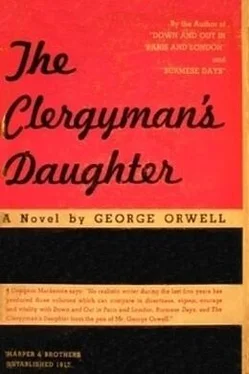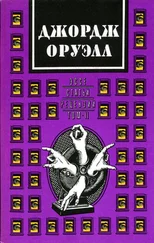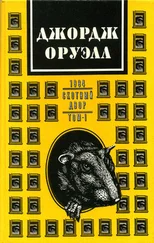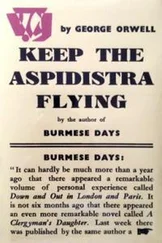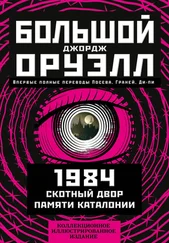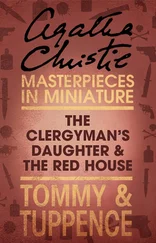A Clergyman's Daughter
George Orwell
As the alarm clock on the chest of drawers exploded like a horrid little bomb of bell metal, Dorothy, wrenched from the depths of some complex, troubling dream, awoke with a start and lay on her back looking into the darkness in extreme exhaustion.
The alarm clock continued its nagging, feminine clamour, which would go on for five minutes or thereabouts if you did not stop it. Dorothy was aching from head to foot, and an insidious and contemptible self–pity, which usually seized upon her when it was time to get up in the morning, caused her to bury her head under the bedclothes and try to shut the hateful noise out of her ears. She struggled against her fatigue, however, and, according to her custom, exhorted herself sharply in the second person plural. Come on, Dorothy, up you get! No snoozing, please! Proverbs vi, 9. Then she remembered that if the noise went on any longer it would wake her father, and with a hurried movement she bounded out of bed, seized the clock from the chest of drawers, and turned off the alarm. It was kept on the chest of drawers precisely in order that she should have to get out of bed to silence it. Still in darkness, she knelt down at her bedside and repeated the Lord's Prayer, but rather distractedly, her feet being troubled by the cold.
It was just half past five, and coldish for an August morning. Dorothy (her name was Dorothy Hare, and she was the only child of the Reverend Charles Hare, Rector of St Athelstan's, Knype Hill, Suffolk) put on her aged flannelette dressing–gown and felt her way downstairs. There was a chill morning smell of dust, damp plaster, and the fried dabs from yesterday's supper, and from either side of the passage on the second floor she could hear the antiphonal snoring of her father and of Ellen, the maid of all work. With care—for the kitchen table had a nasty trick of reaching out of the darkness and banging you on the hip–bone—Dorothy felt her way into the kitchen, lighted the candle on the mantelpiece, and, still aching with fatigue, knelt down and raked the ashes out of the range.
The kitchen fire was a 'beast' to light. The chimney was crooked and therefore perpetually half choked, and the fire, before it would light, expected to be dosed with a cupful of kerosene, like a drunkard's morning nip of gin. Having set the kettle to boil for her father's shaving–water, Dorothy went upstairs and turned on her bath. Ellen was still snoring, with heavy youthful snores. She was a good hard–working servant once she was awake, but she was one of those girls whom the Devil and all his angels cannot get out of bed before seven in the morning.
Dorothy filled the bath as slowly as possible—the splashing always woke her father if she turned on the tap too fast—and stood for a moment regarding the pale, unappetizing pool of water. Her body had gone goose–flesh all over. She detested cold baths; it was for that very reason that she made it a rule to take all her baths cold from April to November. Putting a tentative hand into the water— and it was horribly cold—she drove herself forward with her usual exhortations. Come on, Dorothy! In you go! No funking, please! Then she stepped resolutely into the bath, sat down and let the icy girdle of water slide up her body and immerse her all except her hair, which she had twisted up behind her head. The next moment she came to the surface gasping and wriggling, and had no sooner got her breath back than she remembered her 'memo list', which she had brought down in her dressing–gown pocket and intended to read. She reached out for it, and, leaning over the side of the bath, waist deep in icy water, read through the 'memo list' by the light of the candle on the chair.
It ran:
7 oc. H.C.
Mrs T baby? Must visit.
BREAKFAST. Bacon. MUST ask father money. (P)
Ask Ellen what stuff kitchen father's tonic NB. to ask about stuff for curtains at Solepipe's.
Visiting call on Mrs P cutting from Daily M angelica tea good for rheumatism Mrs L's cornplaster.
12 oc. Rehearsal Charles I. NB. to order 1/2 lb glue 1 pot aluminium paint.
DINNER (crossed out) LUNCHEON … ?
Take round Parish Mag NB. Mrs F owes 3/6d.
4.30 pm Mothers' U tea don't forget 2 1/2 yards casement cloth.
Flowers for church NB. 1 tin Brasso.
SUPPER. Scrambled eggs.
Type Father's sermon what about new ribbon typewriter?
NB. to fork between peas bindweed awful.
Dorothy got out of her bath, and as she dried herself with a towel hardly bigger than a table napkin—they could never afford decent– sized towels at the Rectory—her hair came unpinned and fell down over her collar–bones in two heavy strands. It was thick, fine, exceedingly pale hair, and it was perhaps as well that her father had forbidden her to bob it, for it was her only positive beauty. For the rest, she was a girl of middle height, rather thin, but strong and shapely, and her face was her weak point. It was a thin, blonde, unremarkable kind of face, with pale eyes and a nose just a shade too long; if you looked closely you could see crow's feet round the eyes, and the mouth, when it was in repose, looked tired. Not definitely a spinsterish face as yet, but it certainly would be so in a few years' time. Nevertheless, strangers commonly took her to be several years younger than her real age (she was not quite twenty–eight) because of the expression of almost childish earnestness in her eyes. Her left forearm was spotted with tiny red marks like insect bites.
Dorothy put on her nightdress again and cleaned her teeth—plain water, of course; better not to use toothpaste before H.C. After all, either you are fasting or you aren't. The R.C.s are quite right there—and, even as she did so, suddenly faltered and stopped. She put her toothbrush down. A deadly pang, an actual physical pang, had gone through her viscera.
She had remembered, with the ugly shock with which one remembers something disagreeable for the first time in the morning, the bill at Cargill's, the butcher's, which had been owing for seven months. That dreadful bill—it might be nineteen pounds or even twenty, and there was hardly the remotest hope of paying it—was one of the chief torments of her life. At all hours of the night or day it was waiting just round the corner of her consciousness, ready to spring upon her and agonize her; and with it came the memory of a score of lesser bills, mounting up to a figure of which she dared not even think. Almost involuntarily she began to pray, 'Please God, let not Cargill send in his bill again today!' but the next moment she decided that this prayer was worldly and blasphemous, and she asked forgiveness for it. Then she put on her dressing– gown and ran down to the kitchen in hopes of putting the bill out of mind.
The fire had gone out, as usual. Dorothy relaid it, dirtying her hands with coal–dust, dosed it afresh with kerosene and hung about anxiously until the kettle boiled. Father expected his shaving– water to be ready at a quarter past six. Just seven minutes late, Dorothy took the can upstairs and knocked at her father's door.
'Come in, come in!' said a muffled, irritable voice.
The room, heavily curtained, was stuffy, with a masculine smell. The Rector had lighted the candle on his bed–table, and was lying on his side, looking at his gold watch, which he had just drawn from beneath his pillow. His hair was as white and thick as thistledown. One dark bright eye glanced irritably over his shoulder at Dorothy.
'Good morning, father.'
'I do wish, Dorothy,' said the Rector indistinctly—his voice always sounded muffled and senile until he put his false teeth in— 'you would make some effort to get Ellen out of bed in the mornings. Or else be a little more punctual yourself.'
Читать дальше
